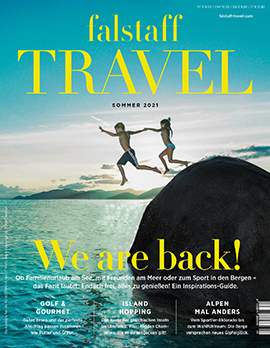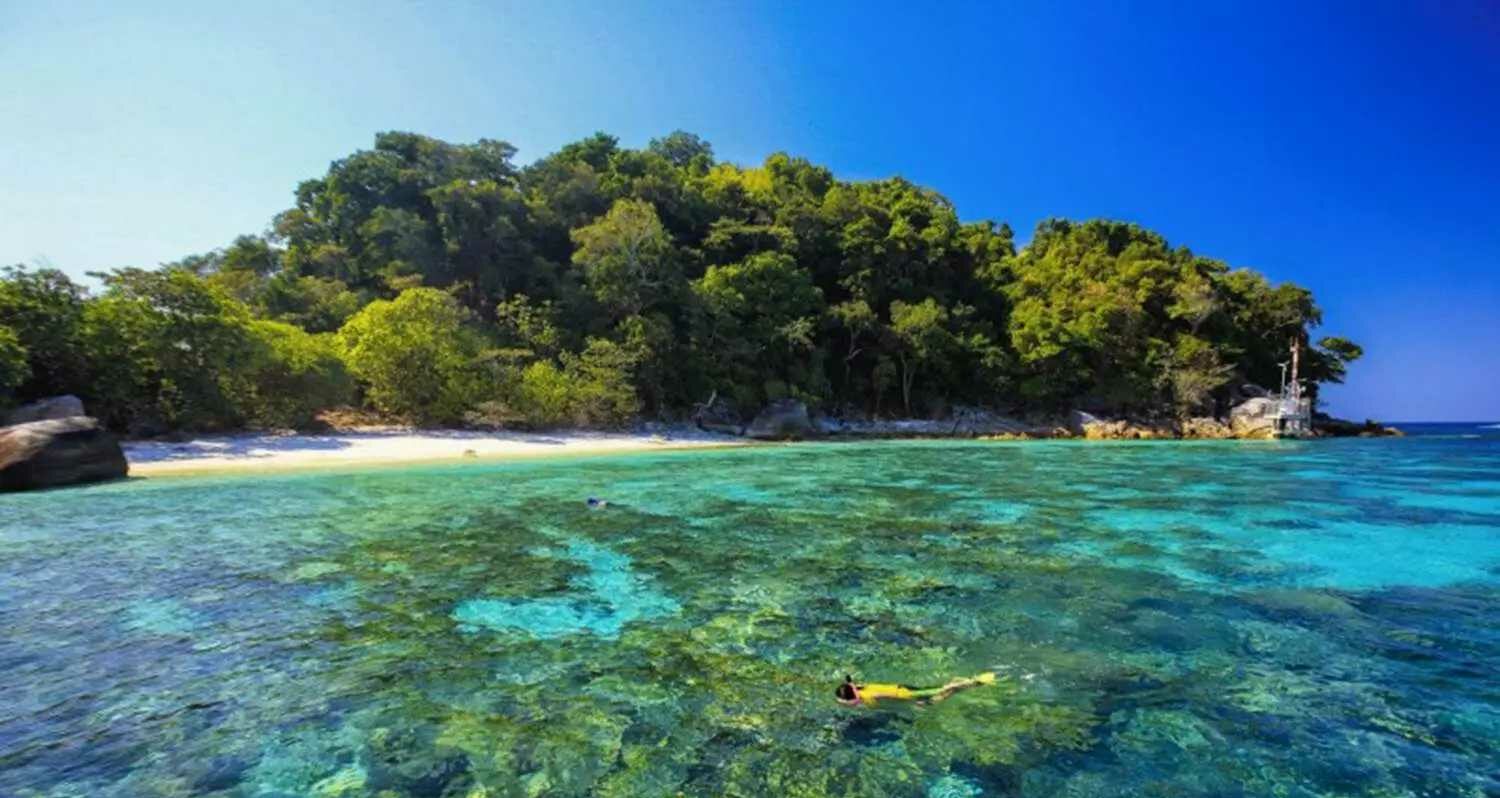
SUSTAINABLE THAILAND: THESE INITIATIVES SHOULD CHANGE TOURISM
Mindful Travelling is high on the agenda.
15 March 2021
Thailand is one of the most popular travel destinations in the world. With white beaches and turquoise blue sea, the country attracts many tourists every year. But Thailand does not only stand for masses of tourists. In the Asian country, there are many sustainable projects and initiatives for more sustainability in tourism. What innovative alternatives there are to plastic and how recycling is implemented in Thailand, you can find out here.
Nationwide plastic ban
As of January 1, 2020, single-use plastic bags will no longer be sold in approximately 25,000 retail stores nationwide. Under the government-industry initiative, Thailand will also phase out the use of Styrofoam food containers, plastic straws and plastic cups by the end of 2022. Thai authorities have also banned the import of health and personal care products containing microplastics, such as those used for facial scrubs. The problem of plastic products received a lot of media attention due to pictures showing the plastic-filled intestines of the dugong, a popular marine mammal in Thailand. Thailand, together with various international companies, is investing in alternative bioplastics made from cassava or sugar cane.
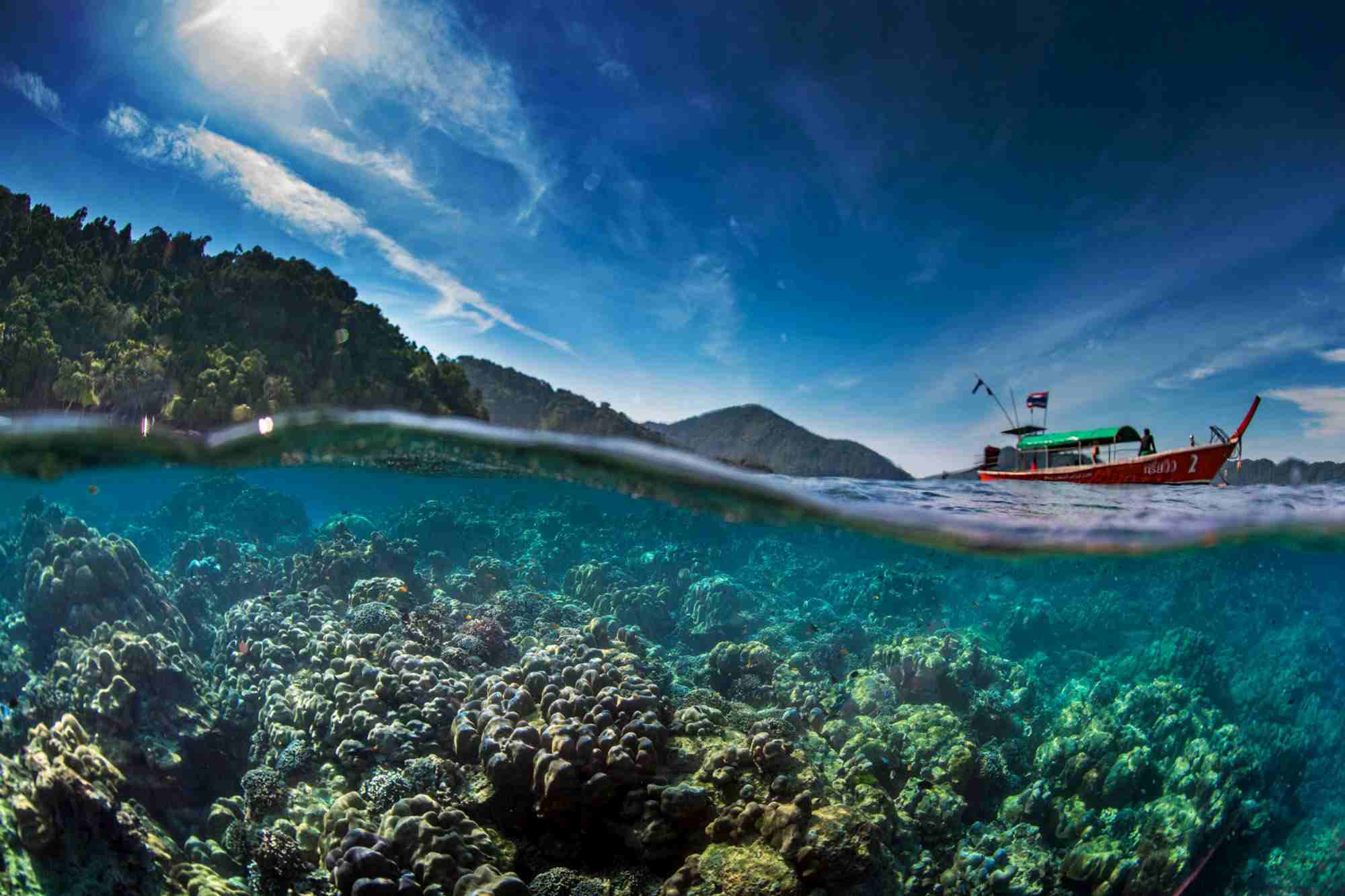
A role model for waste separation
The Thai city of Phitsanulok has become a model city thanks to well-organized waste separation and efficient recycling. Former mayor Premruadee Charmpoonod is proud that her waste management concept is regarded as a national role model. The city won first prize in the national "Zero Waste Management" competition. The "community-based waste management" campaign has been able to raise awareness among the population, and children are also involved as important, responsible youngsters. The successful programme was developed with the help of the Deutsche Gesellschaft für Internationale Zusammenarbeit (GIZ).
With ghost nets against the pandemic
The Net Free Seas project, led by the EJF (Environmental Justice Foundation) and funded by the Norwegian Retailers' Environment Fund, is ridding Thailand's waters of discarded fishing nets. Coastal communities collect the nets and then process them further. This protects marine wildlife while supporting local villages. It is estimated that at least 640,000 tons of fishing gear is left behind in the oceans each year, floating around for decades, endangering whales, dolphins, turtles, seabirds and even entire coral reefs. Net Free Seas project coordinators discuss with local fishermen how they can implement the project at their sites. The ghost nets are collected, gently cleaned and pressed into blocks. A recycling company then processes them into pellets, which in turn are used for new products. Thai design brand Qualy, for example, makes visors to protect against covid-19 disease and keychains to minimize people's contact with infected surfaces. EJF hopes the project will be successful and can be expanded to other countries.
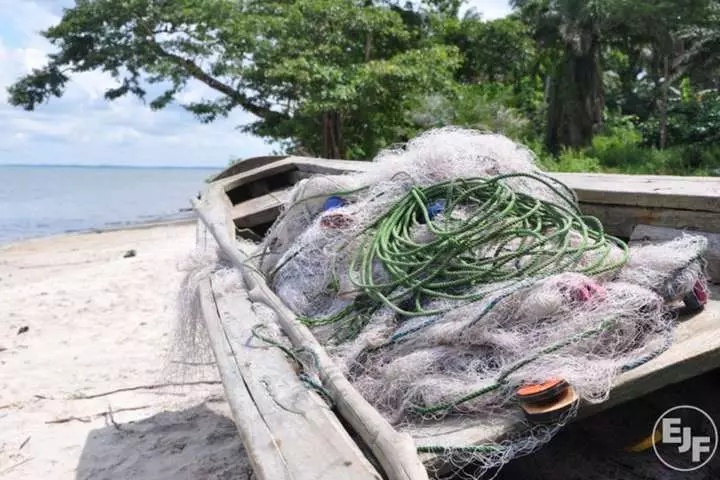
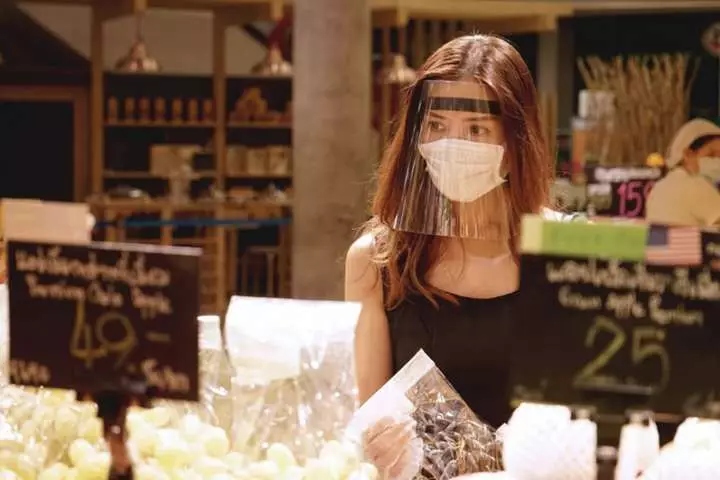
Shoes from marine waste
Also, Tlejourn Shoes deal with plastic floating in the sea. Recycled shoe soles for flip-flops are made from the marine debris. The project works with volunteers from the organization Trash Heros, who collect trash from beaches. Also involved are polymer scientists from the Prince of Songkhla University Pattani, as well as designer brands and locals from Pattani province. Proceeds go to local shoemakers and the local Trash Hero organization in Pattani. Tlejourn aims to raise awareness about the problem of marine pollution and encourage customers to adopt a sustainable lifestyle.
From waste product to plastic alternative
Entrepreneur Jaruwan Khammuang used rice straw, usually a waste product that is burned, to create her startup Fang Thai. The company produces rice paper and disposable tableware. This way, the straw is put to good use and no harmful CO2 is produced by burning it. It also gives rice farmers a job, as they were often left unemployed after the harvest. In 2019, the company won the SEED Low Carbon Award and is financially supported by it. Fang Thai produces recyclable packaging as well as notebooks and other custom designed stationery items.
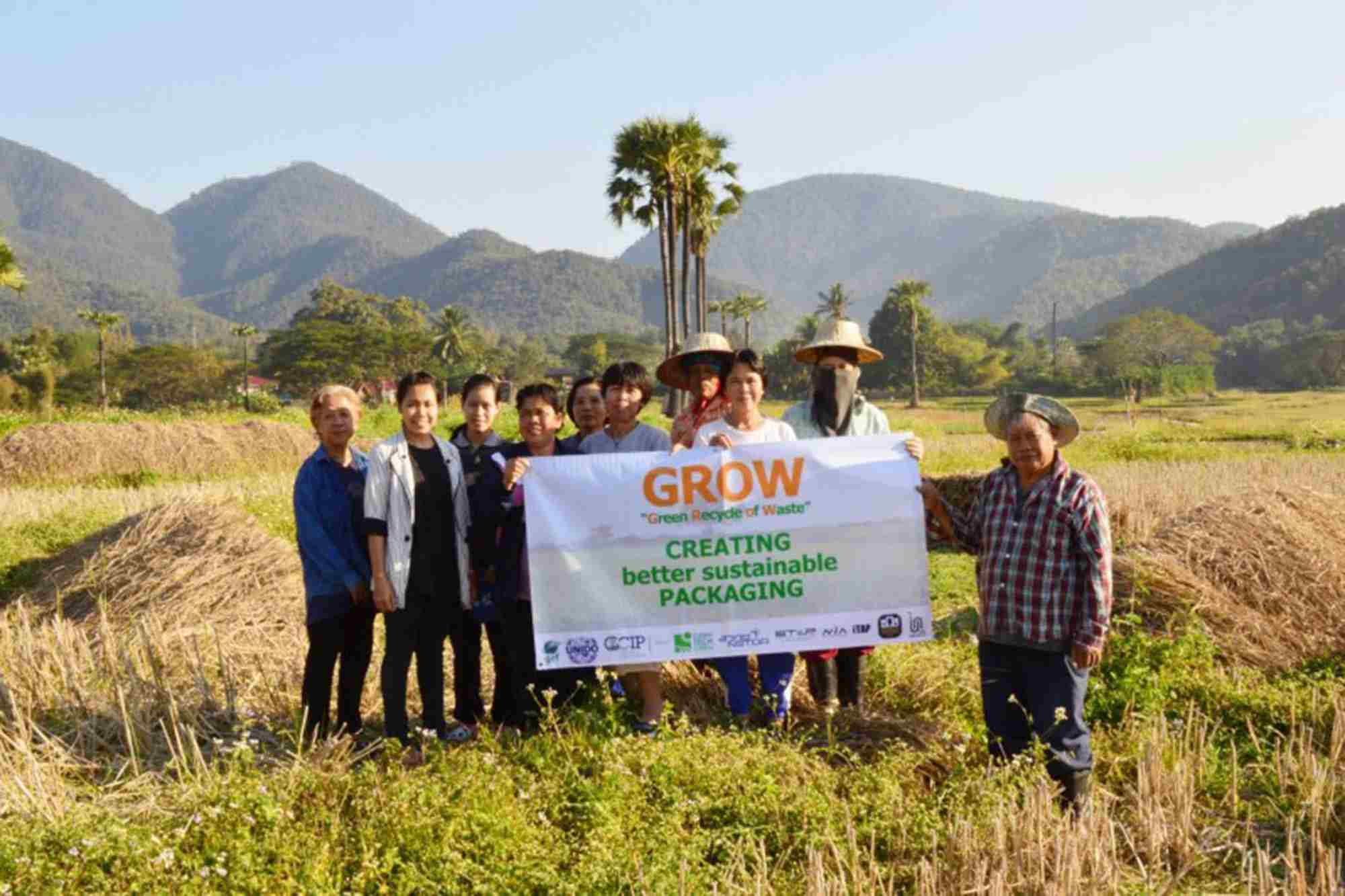
Picture Credits: TAT, EJF, Qualy, SEED, Fang Thai
